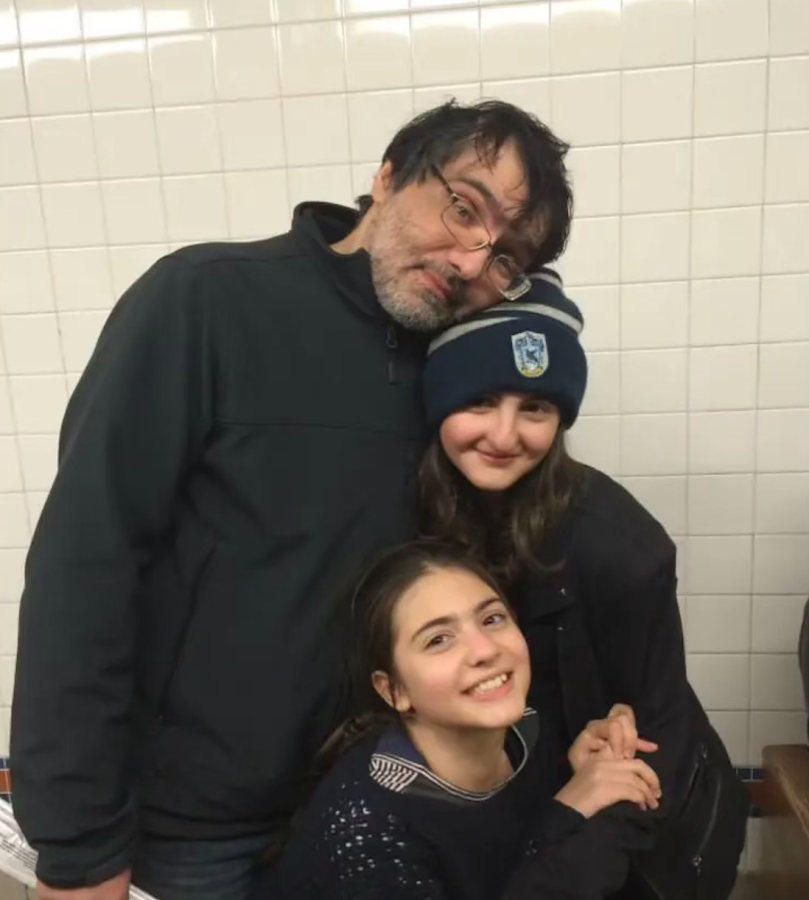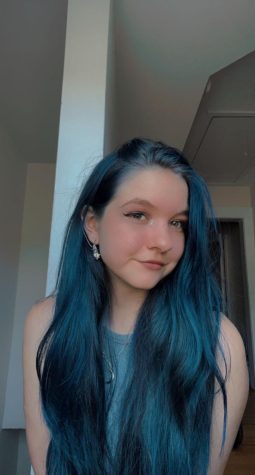How one student has helped others adapt to a new life
December 2, 2022
“The majority of my life, I’ve lived in the States. For almost all of my life, I have strictly spoken English in school, or outside of my home. Then all of a sudden, some days, I feel like I’m speaking more Russian than English,” senior Natalee Stepaniants said.
Stepaniants has recently been tasked with helping Ukrainian students transition to life in an American high school. However, American life hasn’t always been the norm for her either.
Her mother was born in Donbas, Ukraine, and her father was born in Baku, Azerbaijan, but grew up in Armenia. Her parents both lived in Russia before moving to the United States.
“Most of my family, aside from my direct family, are living in either Russia or Ukraine, and some in Armenia,” Stepaniants said.
Starting in 2014, Russia began attacking Donbas, Ukraine, a disputed territory between the two. However, recently, Russia has launched a full invasion of the nation of Ukraine, which is what brought the conflict to the West’s attention. This is similar to the situation happening between Armenia and Azerbaijan, although the conflict in the Caucus has been ongoing for four decades now.
With all the family Stepaniants has in these countries, she hasn’t been able to simply ignore these problems.
“I won’t say it’s so mentally draining or anything, but it is kind of a weird situation to be told, ‘Oh, remember Uncle Misha? He just got drafted, now go do your physics homework,’” she said. “I’m not going to pretend that I’m a victim, that I’m so affected by this since I’m so removed from the conflict. But it is a weird situation.”
With the growing attention to the war in Ukraine, Stepaniants has been hearing about the conflict often.
“I remember last year, a lot of my classes were talking about what was happening in Russia and Ukraine in a very detached sense, and for a lot of people, this is just something that’s happening across the world. For me, though, it’s something that’s happening within my family,” she said.
When several Ukrainian students started at LFHS, Stepaniants was asked to help them transition to their new schedules.
“My counselor emailed me, asking if I spoke Ukrainian, and I said no, but figured I could help anyway,” Stepaniants said. “She asked, ‘Could you come in, there’s a couple of new Ukrainian students, could you help show them around the school?’ So, on the same day that we had student orientation for people new to Lake Forest, I came in and basically walked through the steps of everything you do as a new student. I was there to help translate.”
But it didn’t end there.
“About a month later, I got another email. There were two more students coming in from Ukraine,” Stepaniants said. “This time was during the school day, and I would walk them to each of their classes. So, I would meet them at their previous class, walk them to their next class, and then go to my own. There was some debriefing to do, for example, they have a language acquisition class they have to take, and I had to explain what that would be like for them. I also had to explain what study hall was because they didn’t have that at their old school.”
However, while Stepaniants’ counselor figured introducing her to the incoming students would help them feel more comfortable, considering they could speak to someone in a language not so different from theirs, Stepaniants felt she might not be as qualified for the job as they hoped.
“In America, the only kind of Soviet, Russian people that I speak to are within my family,” she said. “But these are people I’ve never met before. So there’s kind of an added anxiety I feel like I had going into talking with them, where I was like, ‘what if they think I’m stupid and have a stupid accent?’”
Although Stepaniants is of Ukrainian descent, she doesn’t speak Ukrainian. Her mother moved from Ukraine to Russia when she was six years old and didn’t pass down the language to her daughter.
“It’s very common in Ukraine for people to speak Russian, so it’s not like I was expecting to not be able to communicate with them. It’s just embarrassing to see a bunch of Ukrainians and only be able to speak to them in Russian, despite the fact that I am actually Ukrainian.” Stepaniants said, “It feels like spitting in their face, like ‘I’m sorry, you just moved to the US running away from Russian aggression, but now we’re going to speak in Russian.’”
And while Stepaniants thought her assistance was “nothing too big,” Nika Matura, one of the Ukrainian students Stepaniants’ helped, described that she “felt supported and calm knowing that there was someone to help her adapt.”
Overall, Stepaniants has enjoyed helping the six students, saying they’re “all really nice,” and wants people to remember that they’re “just students.” She has even become friends with two of the students and spends time with them outside of school, studying or going to Fright Fest at Six Flags.
But although she’s been able to help new students adjust to their struggles, Stepaniants still holds some of her own.
“I’m so passionate about Armenia. Ukraine will survive, I strongly believe that. People care about it, NATO cares about it, the UN cares about it, and the US cares about it. But it’s different with Armenia. No one was there for the last Armenian genocide, so what are they going to do if Armenia is completely overtaken now by Azerbaijan? In a fully real sense, I’ll say I’m Armenian, and people don’t know what that is.”
Overall, Stepaniants is overjoyed to have been able to assist and get to know the new students and calls for other LFHS community members to try to do the same.
“I don’t know what’s happening in Tajikistan, I don’t know the ins and outs of the conflicts in Iran, but I try to look into them and understand them because there are these people and these cultures being erased, and if no one learns about it, if no one sits down and listens to these stories, all of these years of history can just be erased. I wish more attention was paid to countries that are dissimilar to the US, given that there are cultures being actively erased, and people being driven out of their homes and killed, and a lot of people have no idea about it at all,” Stepaniants said. “If it’s not a big aspect in your life, I don’t expect you to be an activist, but it’s frustrating that there are major difficulties happening within my life, and no one cares to know about them. We should all take the time to learn about the world we live in, and the people that make it up.”







